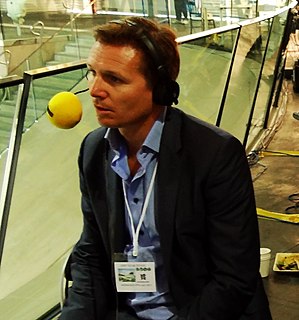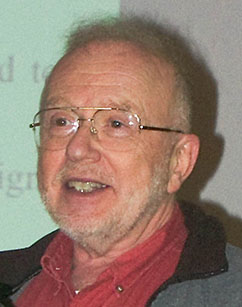A Quote by Alan Cooper
If we want users to like our software, we should design it to behave like a likeable person.
Related Quotes
With software products, it is usual to find that the software has major `bugs' and does not work reliably for some users... The lay public, familiar with only a few incidents of software failure, may regard them as exceptions caused by exceptionally inept programmers. Those of us who are software professionals know better; the most competent programmers in the world cannot avoid such problems.
I'm not of the opinion that all software will be open source software. There is certain software that fits a niche that is only useful to a particular company or person: for example, the software immediately behind a web site's user interface. But the vast majority of software is actually pretty generic.
I'm writing what I want to write. But it's almost an act of rebellion on my part. Because as a person, I've always wanted to be very likeable, and I think that's a horrible thing, particularly for women. You're always like, "Oh, I hope I didn't hurt anyone's feelings. I hope they like me!" And that's just so stupid.
Every decision a person makes stems from the person's values and goals. People can have many different goals and values; fame, profit, love, survival, fun, and freedom, are just some of the goals that a good person might have. When the goal is to help others as well as oneself, we call that idealism. My work on free software is motivated by an idealistic goal: spreading freedom and cooperation. I want to encourage free software to spread, replacing proprietary software that forbids cooperation, and thus make our society better.





























